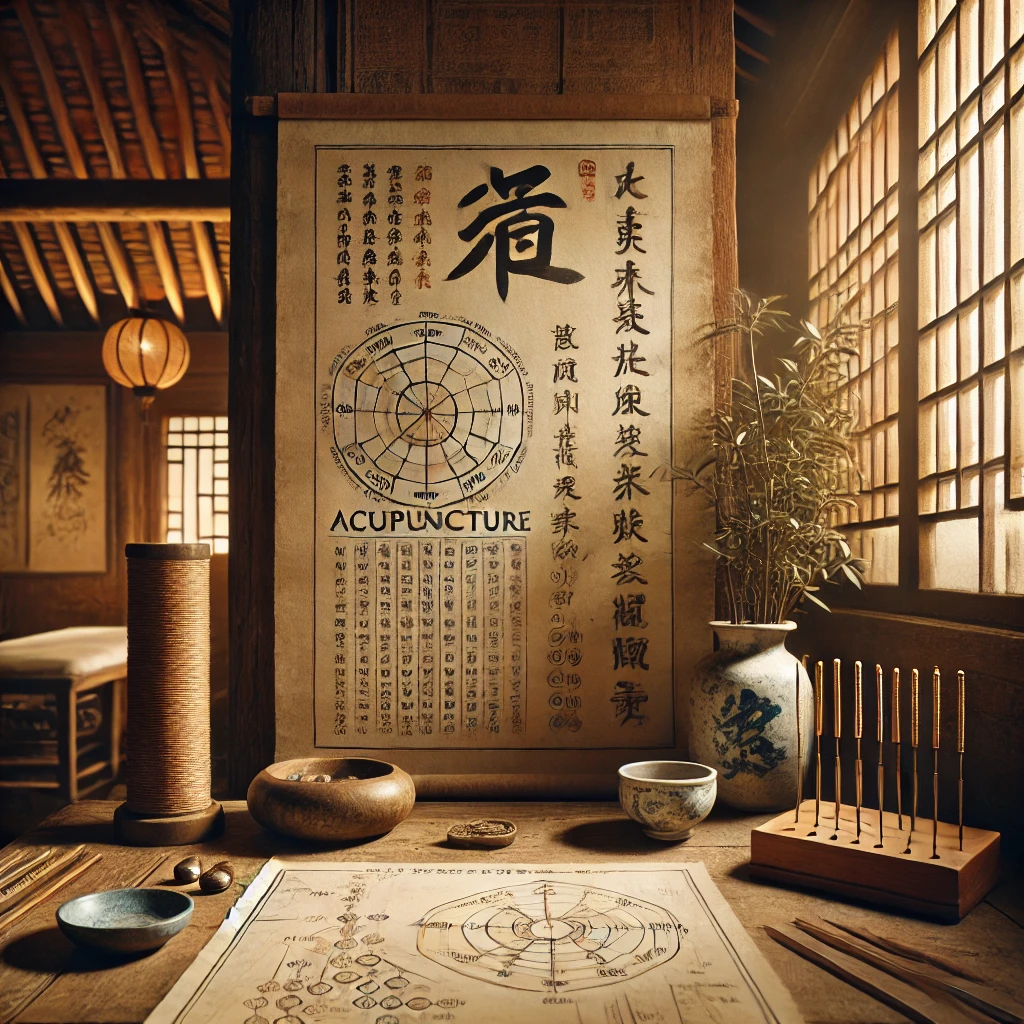
In the modern world, stress has become an omnipresent part of daily life, affecting people across all demographics. From high-pressure work environments to the complexities of personal life, stress infiltrates our routines and impacts our physical and mental well-being. As individuals seek effective methods to manage stress, many are turning to acupuncture, an ancient practice rooted in Traditional Chinese Medicine (TCM), as a preferred solution. Acupuncture, once viewed with skepticism in the West, is now gaining widespread recognition for its ability to alleviate stress and promote overall wellness.
In this blog post, we’ll delve into why acupuncture is becoming the go-to solution for stress relief. We will explore the science behind its effectiveness, the holistic benefits it offers, and how you can incorporate acupuncture into your wellness routine. Additionally, we’ll share resources, including a free “7-Day Yoga and Meditation Challenge for Stress Relief” eBook, that can complement the benefits of acupuncture.
The Rise of Acupuncture in Modern Stress Management

Acupuncture is a therapeutic practice that involves inserting thin needles into specific points on the body, known as acupoints. This practice, which has been used for over 2,000 years in China, is based on the concept of balancing the body’s vital energy, or Qi (pronounced “chee”). According to TCM, Qi flows through pathways in the body called meridians, and disruptions in this flow can lead to illness and stress. Acupuncture aims to restore the balance of Qi, thereby promoting physical and mental well-being.
In recent years, acupuncture has gained significant traction in the West, particularly as an effective method for managing stress. This shift can be attributed to a growing interest in holistic and integrative health approaches, as well as a body of scientific research that supports the efficacy of acupuncture in treating various stress-related conditions.
Why Acupuncture? Acupuncture’s appeal lies in its holistic approach to health. Unlike some conventional treatments that focus solely on symptoms, acupuncture addresses the root causes of stress, offering a comprehensive solution that can enhance both physical and mental health.
The Science Behind Acupuncture and Stress Relief

While acupuncture is rooted in ancient traditions, its benefits are increasingly being validated by modern science. Numerous studies have explored how acupuncture affects the body and mind, particularly in relation to stress.
1. Regulating the Nervous System
One of the primary ways acupuncture helps manage stress is by regulating the nervous system. Stress triggers the body’s fight-or-flight response, activating the sympathetic nervous system and leading to an increase in cortisol levels—commonly known as the stress hormone. Chronic activation of this system can result in a host of physical and mental health issues, including anxiety, insomnia, and cardiovascular problems.
Acupuncture has been shown to counteract these effects by stimulating the parasympathetic nervous system, which is responsible for the body’s rest-and-digest response. This shift helps to lower cortisol levels, reduce heart rate, and promote relaxation, making acupuncture an effective tool for stress management.
Affiliate Product Recommendation: Enhance your acupuncture sessions at home with the ProsourceFit Acupressure Mat and Pillow Set. This set allows you to experience the benefits of acupressure, a related technique, which can help relax the body and mind after a long day.
Complementary Practice: To further calm the nervous system, consider integrating daily meditation into your routine. Our free “7-Day Yoga and Meditation Challenge for Stress Relief” eBook offers guided meditations designed to promote relaxation and reduce stress. Download your free guide here.
2. Balancing Hormones and Neurotransmitters
Acupuncture’s ability to influence the endocrine system also plays a significant role in its stress-relieving effects. Research indicates that acupuncture can stimulate the release of endorphins, the body’s natural painkillers, as well as serotonin and dopamine, neurotransmitters associated with feelings of well-being and happiness. By balancing these chemicals, acupuncture helps to alleviate symptoms of anxiety and depression, making it an effective treatment for chronic stress.
Moreover, acupuncture has been shown to regulate the hypothalamic-pituitary-adrenal (HPA) axis, which controls the body’s stress response. By modulating the HPA axis, acupuncture can help to maintain hormonal balance, reduce the impact of stress on the body, and promote a sense of calm and stability.
Affiliate Product Recommendation: For those looking to enhance their mood naturally, consider supplementing your routine with Ashwagandha Capsules. Ashwagandha is an adaptogen known for its ability to reduce cortisol levels and support overall mental health, making it an excellent complement to acupuncture.
Holistic Support: Pair your acupuncture treatments with yoga practices that support hormonal balance and mental well-being. Our free “7-Day Yoga and Meditation Challenge for Stress Relief” eBook provides yoga sequences that align with the principles of acupuncture, offering a holistic approach to stress management. Get your free copy here.
3. Improving Sleep Quality
One of the most common effects of chronic stress is poor sleep. Insomnia and disrupted sleep patterns are often a direct result of elevated stress levels, and in turn, lack of sleep exacerbates stress, creating a vicious cycle. Acupuncture has been shown to improve sleep quality by addressing the underlying causes of insomnia, such as anxiety, hormonal imbalances, and nervous system dysregulation.
By promoting relaxation and reducing anxiety, acupuncture helps to restore healthy sleep patterns. Specific acupoints, such as Shenmen (HT7) and Anmian, are particularly effective in calming the mind and facilitating restful sleep.
Affiliate Product Recommendation: Enhance your nighttime routine with Yogi Bedtime Tea, an herbal blend designed to promote relaxation and improve sleep quality. Drinking a cup of this tea before bed can complement the calming effects of acupuncture.
Prepare for Better Sleep: Incorporate sleep-focused yoga and meditation practices from our free eBook to further enhance your sleep quality. These practices work synergistically with acupuncture to create a restful environment conducive to deep sleep. Download the “7-Day Yoga and Meditation Challenge for Stress Relief” here.
Holistic Benefits of Acupuncture Beyond Stress Relief

While stress relief is one of the most compelling reasons people turn to acupuncture, the practice offers a range of additional benefits that contribute to overall wellness. Understanding these broader benefits can help you appreciate why acupuncture is not just a treatment, but a holistic approach to health.
1. Boosting the Immune System
Chronic stress can weaken the immune system, making the body more susceptible to illness. Acupuncture has been shown to enhance immune function by increasing the production of immune cells and improving the body’s ability to fight off infections. Regular acupuncture treatments can help to strengthen the immune system, making it more resilient to the effects of stress and environmental factors.
Affiliate Product Recommendation: Support your immune system further with Echinacea Supplements. Echinacea is a well-known herb that boosts immune function and helps protect against colds and flu, making it a valuable addition to your wellness routine.
Strengthen Your Immunity with Holistic Practices: Combine the immune-boosting effects of acupuncture with stress-reduction techniques found in our free “7-Day Yoga and Meditation Challenge for Stress Relief” eBook. A strong immune system starts with a calm and balanced mind. Get your free guide here.
2. Enhancing Digestive Health
The digestive system is highly sensitive to stress, and many individuals experience digestive issues such as irritable bowel syndrome (IBS), acid reflux, or bloating when they are under stress. Acupuncture can help to regulate the digestive system by promoting the smooth flow of Qi and reducing inflammation in the gut. By addressing both the physical and emotional components of digestive health, acupuncture offers a comprehensive solution to stress-related digestive issues.
Affiliate Product Recommendation: To support digestive health, consider taking Ginger Root Capsules. Ginger is known for its anti-inflammatory and digestive benefits, making it a natural complement to acupuncture treatments aimed at improving gut health.
Holistic Digestive Support: Pair acupuncture with yoga poses that aid digestion and reduce stress, as outlined in our free eBook. These practices help create a balanced internal environment, promoting both mental and physical well-being. Download the “7-Day Yoga and Meditation Challenge for Stress Relief” here.
3. Promoting Emotional Resilience
Acupuncture is not only effective in managing acute stress but also in building long-term emotional resilience. By regulating the nervous system and balancing hormones, acupuncture helps individuals develop a greater capacity to cope with stress and adversity. Over time, regular acupuncture treatments can lead to a more balanced emotional state, making it easier to navigate life’s challenges with calm and confidence.
Affiliate Product Recommendation: Consider using a Meditation Timer with Soothing Chimes during your acupuncture sessions or meditation practice to enhance your focus and promote a deeper state of relaxation.
Build Emotional Resilience: Our free “7-Day Yoga and Meditation Challenge for Stress Relief” eBook includes mindfulness practices designed to complement acupuncture’s benefits. These practices help cultivate a resilient mindset, empowering you to manage stress more effectively. Get your free copy here.
Incorporating Acupuncture into Your Wellness Routine

For those new to acupuncture, the idea of incorporating this ancient practice into your modern wellness routine may seem daunting. However, acupuncture is highly adaptable and can be seamlessly integrated into a variety of lifestyles. Here’s how you can make acupuncture a regular part of your stress management strategy.
1. Find a Qualified Acupuncturist
The first step in incorporating acupuncture into your routine is finding a qualified acupuncturist. Look for practitioners who are licensed and have extensive experience in treating stress-related conditions. Many acupuncturists also offer complementary therapies, such as herbal medicine or cupping, which can enhance the benefits of your treatments.
Pro Tip: Before booking your first appointment, consider scheduling a consultation to discuss your specific stress-related concerns and treatment goals. This will help your acupuncturist create a personalized treatment plan tailored to your needs.
2. Commit to Regular Sessions
While even a single acupuncture session can provide immediate relief, the benefits of acupuncture are cumulative. For optimal results, it’s recommended to commit to regular sessions, especially during periods of heightened stress. Consistency is key to achieving long-term stress relief and maintaining overall wellness.
Affiliate Product Recommendation: To maintain the effects of your acupuncture sessions, consider using a Portable Acupressure Mat at home. This mat provides acupressure therapy that can extend the benefits of your acupuncture treatments between sessions.
3. Integrate Complementary Practices
To maximize the benefits of acupuncture, it’s important to integrate complementary practices into your daily routine. Yoga, meditation, and mindful breathing exercises are excellent additions that can enhance the stress-relieving effects of acupuncture. These practices help to calm the mind, regulate the nervous system, and maintain the balance achieved during your acupuncture sessions.
Start Your Holistic Wellness Journey: To help you get started, we’ve created a free “7-Day Yoga and Meditation Challenge for Stress Relief” eBook. This guide offers a structured plan that combines yoga, meditation, and mindfulness practices designed to complement acupuncture and support your mental health. Download it here.
Embrace Acupuncture as a Go-To Solution for Stress Relief

In a world where stress is an inevitable part of life, finding effective and sustainable methods to manage it is crucial for maintaining overall well-being. Acupuncture, with its holistic approach and proven efficacy, stands out as a go-to solution for stress relief. By regulating the nervous system, balancing hormones, improving sleep, and offering a host of additional health benefits, acupuncture provides a comprehensive and natural way to combat stress.
As you embark on your journey to better mental health, consider making acupuncture a regular part of your wellness routine. Whether you’re a busy professional, an older adult seeking alternative therapies, or a wellness enthusiast exploring holistic solutions, acupuncture offers a path to greater balance, peace, and resilience.
To further support your stress management efforts, we invite you to download our free “7-Day Yoga and Meditation Challenge for Stress Relief” eBook. This guide is designed to complement the benefits of acupuncture by providing you with daily practices that promote relaxation, mindfulness, and overall well-being. Download your free copy here and take the first step towards a calmer, more balanced life today.
Affiliate Disclosure: This post contains affiliate links, which means we may earn a commission if you purchase through these links, at no extra cost to you. We only recommend products we genuinely believe will enhance your wellness journey.



Leave a Reply